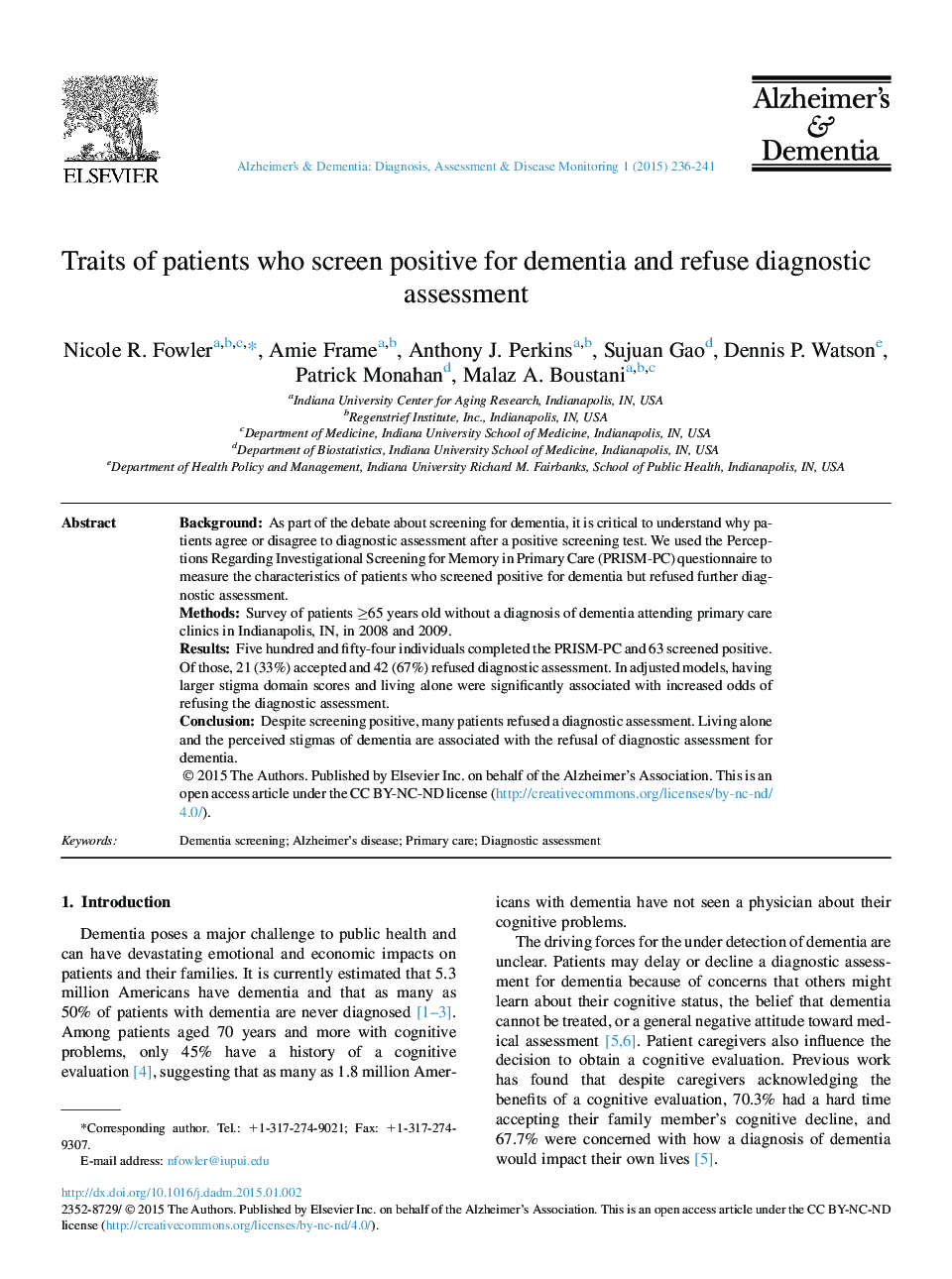| کد مقاله | کد نشریه | سال انتشار | مقاله انگلیسی | نسخه تمام متن |
|---|---|---|---|---|
| 3032029 | 1183994 | 2015 | 6 صفحه PDF | دانلود رایگان |
BackgroundAs part of the debate about screening for dementia, it is critical to understand why patients agree or disagree to diagnostic assessment after a positive screening test. We used the Perceptions Regarding Investigational Screening for Memory in Primary Care (PRISM-PC) questionnaire to measure the characteristics of patients who screened positive for dementia but refused further diagnostic assessment.MethodsSurvey of patients ≥65 years old without a diagnosis of dementia attending primary care clinics in Indianapolis, IN, in 2008 and 2009.ResultsFive hundred and fifty-four individuals completed the PRISM-PC and 63 screened positive. Of those, 21 (33%) accepted and 42 (67%) refused diagnostic assessment. In adjusted models, having larger stigma domain scores and living alone were significantly associated with increased odds of refusing the diagnostic assessment.ConclusionDespite screening positive, many patients refused a diagnostic assessment. Living alone and the perceived stigmas of dementia are associated with the refusal of diagnostic assessment for dementia.
Journal: Alzheimer's & Dementia: Diagnosis, Assessment & Disease Monitoring - Volume 1, Issue 2, June 2015, Pages 236–241
